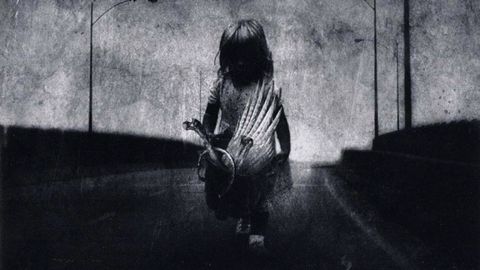Though they still rack up the column inches in the metal press, Sweden’s Katatonia have achieved a considerable distance from their doom-death beginnings, becoming a rock group with a signature sound that is hard to categorise. In fact, given the development of their characteristically morose melodic sensibility, it’s somewhat tempting to view them as part of a Swedish tradition that includes pop outfits such as ABBA, A-ha and The Cardigans, whose catchy refrains sweeten some of the chilliest, most bereft lyrical content ever to capture the imagination of an international audience.
By the time Viva Emptiness was released in ’03 the Katatonia’s transformation - mirroring that of UK post-doom pioneers Paradise Lost, My Dying Bride and Anathema – was already well underway. Earlier albums witnessed throat-shredding vocals and straightforward doom dynamics giving way to honest to goodness singing and riffs that echoed the supple complexity of Tool (at least before 2001’s Lateralus signalled the break from traditional song structure that would culminate in the furiously knotted 10,000 Days).
The songs that make up Viva Emptiness exert a tidal pull on the listener, riffs rolling and overlapping while Jonas Renkse’s vocals exude a hypnotic calm, as though the loss of all hope has sent him beyond the range of human emotion. 2000’s Last Fair Deal Gone Down is rightly revered, but here the performances are more assured, the band identifiable as the emotional juggernaut they are today.
This new edition represents something of an overhaul. The group were unsatisfied with the original mix, and this rework is specifically designed to slot alongside the more polished likes of The Great Cold Distance, Night Is The New Day and Dead End Kings. Purists may balk at the addition of new vocal and keyboard parts, but the band prove able guardians of their own aesthetic, and none of the original’s power is sacrificed in this modernisation.
If there’s one shortcoming to Viva Emptiness it’s that the band seem so comfortable with where they’ve found themselves that they’re reluctant to shift position. So while the album cannot be faulted for its consistency of sound and mood, its effectiveness is largely dependent on the listener’s frame of mind.
More recent works have seen measures taken against the creative inertia that could have resulted, the formula modified to incorporate additional textures and fresh ideas. This is entirely in keeping with Katatonia’s tendency towards gradual evolution rather than hasty innovationa process Viva Emptiness serves well to illustrate.

